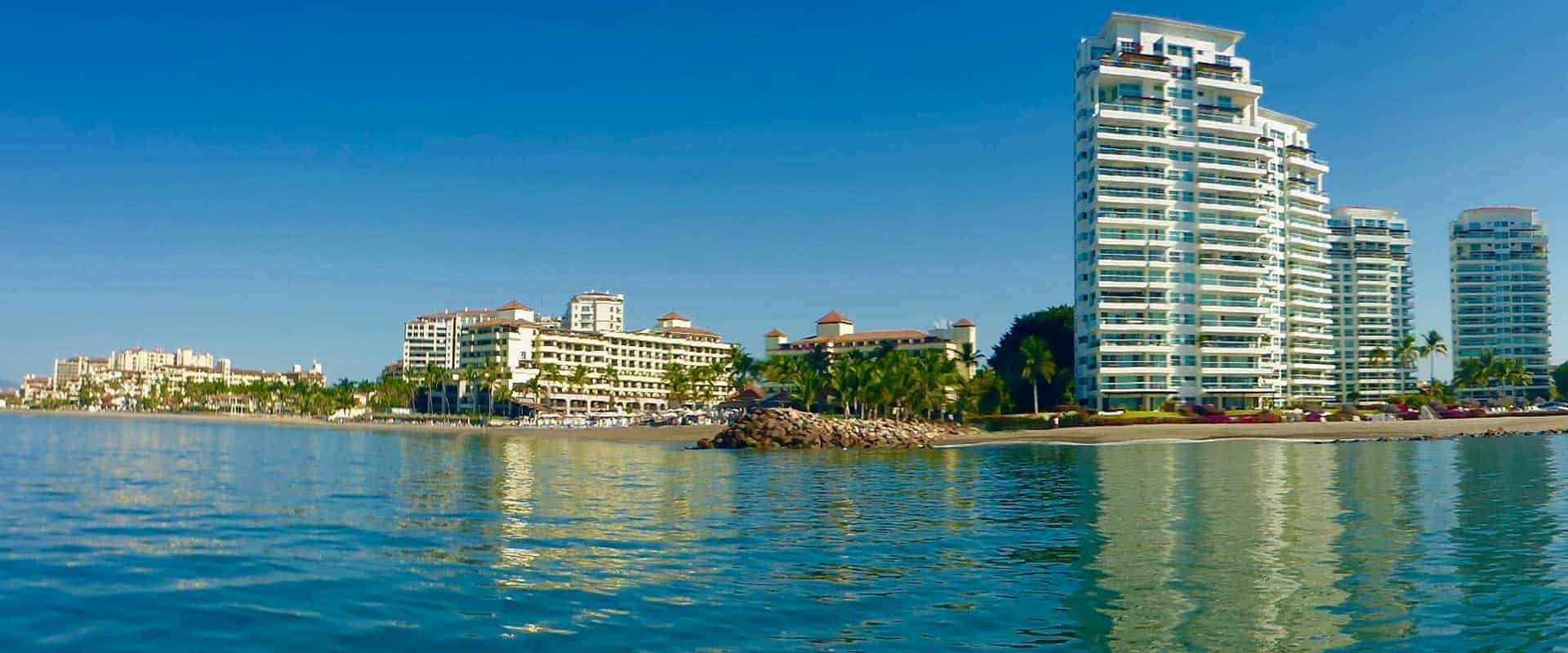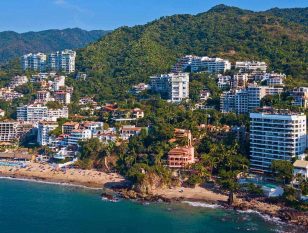
When most people think of real estate as an industry, it brings up images of tracts of single family homes, large commercial and condominium towers and shopping malls. But are there benefits other than providing housing, office space and shopping opportunities? If this is all that is taken into consideration, the real estate industry can seem to be doing whatever it can to fulfill its own interests, sometimes above the best interests of the community. But there are benefits that arise from real estate that too often are not considered, shortchanging the industry and, in some respects, giving it a bad image.
Let's reflect on the real estate industry in the Puerto Vallarta area.
Golf Courses
Real estate developers learned a long time ago that, if you want to sell real estate, you have to deliver amenities. Building tracts of homes or condominium towers is not enough. If you want a project to sell well, add extras such as golf courses, marinas and commercial spaces. In this region, there are currently nine playable golf courses. Of these, only two were developed by the government: Flamingos, which faltered and eventually was sold to a real estate developer who has done an excellent job of restoring it to its original condition, and Litibu to the north in the state of Litibú. All the rest were built by private corporations, most of them real estate developers. Visit here for a complete directory of golf courses in the region.
After Flamingos, the first course to be developed was the Marina Vallarta golf course by Grupo Situr. It was eventually sold to Club Corp, which also built two more courses behind Vallarta that also have a real estate component to them. Next to follow were the courses of Mayan Island, Paradise Village (El Tigre) and Punta Mita, very good examples of golf courses built to facilitate real estate sales. It’s probably safe to say that if it weren’t for real estate developers, there’s a good chance we wouldn’t have golf available today in Vallarta.
Building golf courses is a major investment, and involving the sale of homes along the fairways goes a long way toward paying for the course. Golf is one of the main drivers behind tourism promotion throughout North America and, especially, here in Vallarta. Promoting this destination is simply easier with the availability of good golf courses, just ask any hotelier.
Marinas
Another important amenity offered by real estate developers are marinas. There are currently four in this area, three built by real estate developers (Marina Vallarta,Nuevo Vallarta and Paradise Marina). The fourth is the new marina in La Cruz, which also has a very strong real estate component, strong enough that I’m sure the developer would not object to being called a real estate developer who built a marina to attract real estate buyers, rather than a marina developer who included real estate to attract boaters. Real estate can pay for a marina investment much faster than moorage fees can. Of the secondary industries, these would probably be the most obvious, although it is amazing how few people have thought about this when I bring it up. But there are other benefits, as well. Probably, the most obvious would be the additional revenues for the municipality through property taxes. Next would be home decoration and art galleries.
Decoration and Art
Most condominiums and homes are sold unfurnished, opening a major market for those selling furniture and home decor items. It wasn't too long ago that most people either shipped furniture down from the USA or purchased what they needed in Guadalajara. Today, we have a number of fine furniture stores, so there is no need to go out of town to furnish your home. And as homes and condominium sizes have increased, so has the need for more furniture. The same goes for the art galleries. These homes need art on their walls, and Vallarta has plenty to offer. The past five years have created a small boom for gallery owners and their artists.
Employment
It takes people to build all of these homes and condominiums, a demand so great that Vallarta has had to attract workers from other parts of Mexico. One interesting trend we are seeing is that many of these workers are bilingual, having returned to Mexico from the USA because of either the slowdown in the homebuilding industry or the tightening of immigration laws. Sometimes the workers speak better English than their employers!
Employment is also created by the need for people to manage and administrate the homes and condominium complexes, including gardeners, maintenance, security and property managers. There actually is a lack of people to fill these types of positions and a demand for qualified, professional administrators.
There is also a demand for professionals such as notaries, lawyers, accountants, engineers and architects, all important aspects in the purchase, sale and constructions of real estate properties.
Restaurants
Vallarta has seen nearly every hotel in the region begin offering an all-inclusive program. For many, that's all they offer. So, what does that do for the restaurants in Vallarta? They suffer from it. If it weren't for full-time real estate and timeshare owners, we would not have the quality of restaurants we do. Real estate provides a base that the restaurants can depend on, even during the low season. A study done a few years ago showed that home owners in Vallarta dine out two to three times a week when they are in town.
Demand for Airlift
Hotel operators sometimes complain that people who own full-time real estate are taking away air seats from potential clients for their hotels. I believe it's the other way around: there is more airlift because of the increased demand by homeowners. In order to attract airlines and increased service to a destination, there needs to be strong demand, and the numbers need to be high. Real estate, including timeshare, provides the numbers. This is one of the reasons Vallarta has the wide variety of carriers servicing the destination today, more than many other Mexican destinations.
Non-Profit Service
And we can't complete this piece without mentioning one very important component that receives the attention of property owners, especially those choosing to retire here. They have time on their hands and many get involved with non-profit organizations. They benefit greatly through their direct participation or donations. Many NPO's simply would not survive without this important input.
There you have it. There is much more to real estate than meets the eye. Real estate contributes greatly to the community. There can, of course, be negative aspects to real estate growth. It's inherent in most developers, if they are to be successful, to get the most they can out of their investment, which sometimes can mean building too high or too much. But that's where local government needs to step in and regulate the industry. However, too often that side of the business gets much more coverage than the positive aspects of the real estate industry. Real estate does contribute more than its share to the community and should be recognized for it.


